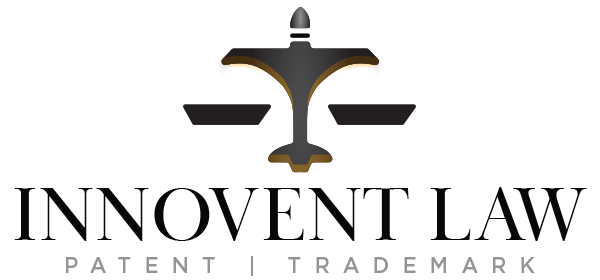Trademark vs LLC: Essential Differences and What Every Business Should Do First
Starting a business involves making several important decisions. Among them is whether to prioritize forming an LLC (Limited Liability Company) or registering a trademark. Understanding the difference between an LLC and a trademark is crucial for protecting your business name and brand identity. This blog post explains the roles of both and helps you decide which step to take first, ensuring that your business is well-protected from the outset.
Basics of Trademarks
A trademark is a legal protection for a brand name, logo, or other identifier that distinguishes your goods or services from others. Trademarks prevent others from using your brand name or logo in a way that could confuse consumers. This protection is essential for maintaining your brand’s integrity and ensuring that customers can identify your products or services easily in the marketplace.
The USPTO trademark process involves several steps, including searching for existing trademarks, filing an application, and responding to any challenges. Once registered, your trademark provides nationwide protection and can be renewed indefinitely, offering lasting security for your brand.
Types of Trademarks:
- Word Marks: Protects the text of your brand name.
- Design Marks: Protects logos and designs that identify your brand.
- Service Marks: Similar to trademarks but specifically for services rather than goods.
For more on the benefits of trademark registration, visit our Trademark Registration Benefits page.
Basics of LLCs
An LLC (Limited Liability Company) is a business structure that provides personal liability protection to its owners. This means that if your business is sued, your personal assets are generally protected. Forming an LLC is an important step in establishing your business and separating your personal finances from your business finances.
Creating an LLC also gives your business credibility and may be required for certain business activities, such as opening a business bank account or signing contracts. However, an LLC alone does not protect your business name or brand from being used by others.
LLC Formation Process:
- Choose a Business Name: Ensure it’s unique and not already in use.
- File Articles of Organization: Submit this to your state’s business office.
- Create an Operating Agreement: Although not required in all states, it’s recommended.
- Get an EIN: An Employer Identification Number is needed for tax purposes.
Difference Between LLC and Trademark
The key difference between an LLC and a trademark is the type of protection they offer. An LLC protects your personal assets from business liabilities, while a trademark protects your brand identity from being used by others. In other words, an LLC is about legal structure, while a trademark is about brand protection.
It’s also important to note that LLC and trademark registrations are handled by different authorities. LLCs are registered at the state level, while trademarks are registered at the federal level through the USPTO.
Which One Comes First and Why?
When deciding whether to form an LLC or register a trademark first, consider your business goals. If you’re launching a new product or service and want to protect its name or logo, a trademark might be your first priority. However, if you’re establishing a business entity and need to protect your personal assets, forming an LLC should come first.
Advantages of Registering a Trademark First:
- Brand Protection: Secures your brand name or logo before someone else uses it.
- National Recognition: Provides protection across the United States.
Advantages of Forming an LLC First:
- Legal Protection: Shields your personal assets from business debts and liabilities.
- Business Credibility: Helps in opening a business bank account and signing contracts.
In many cases, it’s advisable to do both simultaneously. This ensures that your business name is protected at both the state and federal levels and that your brand identity is safeguarded from the start.
For more guidance on the USPTO trademark process, visit our USPTO Trademark Process page.
Checklist for Business Owners: What to Know About Trademarks and LLCs
Here’s a quick checklist to help you navigate the process of securing both an LLC and a trademark:
- Conduct a Trademark Search: Before registering your business name as an LLC, ensure it’s not already trademarked.
- Register Your LLC: File with your state’s business office to form your LLC and protect your personal assets.
- File a Trademark Application: Submit your trademark application to the USPTO to secure nationwide protection for your brand.
- Consider Timing: Decide whether to file for an LLC or trademark first based on your business needs.
- Consult with an Attorney: Work with a legal professional to ensure that both your LLC and trademark filings are done correctly.
By following these steps, you can effectively protect your business from legal and financial risks while also securing your brand identity.
FAQ Section
Do I Need Both an LLC and a Trademark? Yes, both offer different protections. An LLC protects your personal assets, while a trademark protects your brand identity.
Can I Trademark My Business Name Without an LLC? Yes, you can trademark a business name without forming an LLC. However, forming an LLC provides additional legal protection.
What Happens if Someone Else Trademarks My Business Name? If someone trademarks your business name first, they could potentially prevent you from using it nationwide. It’s essential to conduct a trademark search early in the process.
Protecting Your Business with Trademarks and LLCs
Understanding the differences between LLCs and trademarks and knowing which to prioritize can significantly impact your business’s success. Both are essential tools for protecting your business, but they serve different purposes. Whether you decide to form an LLC first or register a trademark, ensure you’re taking the necessary steps to secure both your brand and your business structure.
For more information or to get started, contact Innovent Law today. Visit our contact page to schedule a consultation and explore how we can assist you in protecting your business and brand.

